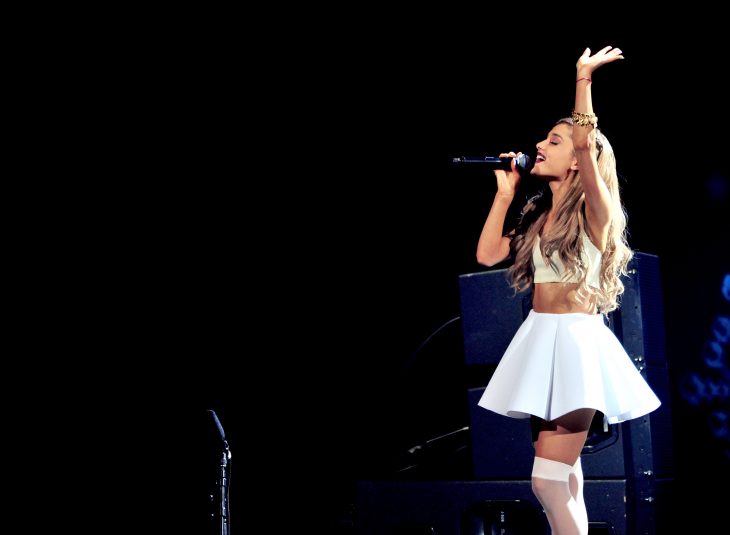Until last night Ariana Grande’s fans, predominantly tweens and teens, were more preoccupied with the concept of friendship than the ripple effect of international politics. I witnessed this first hand when I was working at MTV and oversaw a Twitter Q&A with Grande, where she spent an hour or so answering questions sent in by fans. As Grande and I scrolled through the 90,000 tweets, I couldn’t help but marvel at how many were on the topic of friendship.
‘What do you look for in a friend?’ they clamoured to know. ‘Who’s your best friend?’ ‘Will you be my friend?’
Today, ‘Arianators’, as her fanbase call themselves, are tragically united in grief and solidarity as well as friendship, collectively lamenting on Twitter the loss of 18-year-old Georgina Callander and eight-year-old Saffie Rose Roussos – the first victims to be named in the attack – whether they knew them personally or not. Georgina and Saffie, you see, were Arianators and any Arianator is a friend.
On the one hand, the innocence of the victims makes the attack even more incomprehensible. On the other, it illuminates exactly why Manchester Arena was targeted in the first place, just eighteen months after the Bataclan attacks in Paris. Because music – and the community it engenders – is the natural enemy of fundamentalism.
Music has long been a forum for collaboration, creativity and, most dangerously for authoritarian regimes, protest, both political and sexual. Grande, as it happens, fell into the latter camp, having followed the well-trodden route of swapping a lead part on a kids’ TV show – she was one of the best known faces on Nickelodeon – for black PVC bras, thigh-high boots and knowing lyrics. With her perennially baby-faced good looks (she’s actually 23), she often drew criticism for her risqué sartorial choices.
But Grande could happily ignore such criticism because one of the most basic elements of music in the West – both in its creation and its performance – is freedom of expression, as Madonna demonstrated in her heyday. And while a predilection for miniskirts is by no means the reason Grande’s concert was targeted, it does go towards explaining why music – even pop music – is so loathed by Islamic fundamentalists. Iran’s supreme leader, Ayatollah Ali Khamenei, has publicly stated that music is ‘not compatible with the highest values of the sacred regime of the Islamic Republic’.
If all that seems to give too much credit to a musical genre that is more often than not dismissed as being the preserve of teen girls, consider the impact of the popularity of the Beatles in the USSR, which had the dual effect of empowering youth and humanising the West, and is increasingly seen as a crucial part of the puzzle in explaining the downfall of the Soviet Union.
An attack on music – of any genre – is a direct attack on democracy. And that’s one of the reasons, other than the sheer depravity signalled by its choice of victims, that the bombing of the Manchester Arena, more so even than the car rampage two months ago in the political capital, feels like an invitation to war.






Comments